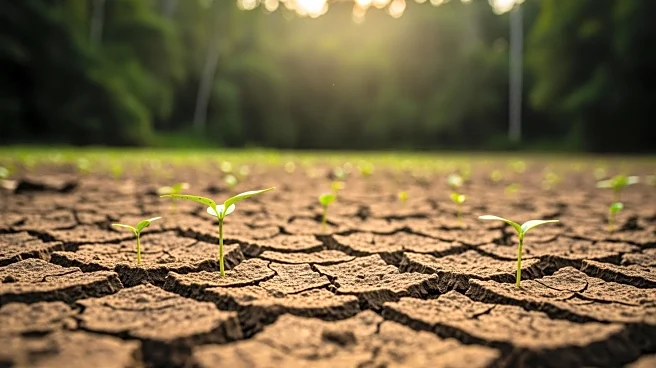What's Happening?
Approximately 100 protesters blocked the main entrance to the COP30 climate conference in Belem, Brazil, on Friday morning. The demonstration, led by individuals wearing clothing associated with Indigenous
groups, formed a human chain around the venue. This marks the second disruption in four days, despite the conference's focus on empowering native peoples. Participants were rerouted to enter through a side entrance, with no reported physical altercations. The protest follows earlier clashes between Indigenous demonstrators and security personnel, resulting in minor injuries.
Why It's Important?
The protests underscore the ongoing tensions between Indigenous communities and global climate policy discussions. Indigenous groups are seeking greater representation and influence in climate talks, as they are often disproportionately affected by environmental changes. The disruptions highlight the need for inclusive dialogue and consideration of Indigenous perspectives in shaping climate policies. The situation reflects broader challenges in balancing environmental goals with social justice and equity.
What's Next?
As the conference continues, further demonstrations are expected, particularly on Saturday, traditionally a day of significant protests during climate talks. Organizers may need to address the concerns raised by Indigenous groups to ensure a productive and inclusive dialogue. The situation may prompt discussions on how to better integrate Indigenous voices into climate policy-making processes.
Beyond the Headlines
The protests at COP30 highlight the cultural and ethical dimensions of climate change discussions. Indigenous communities often possess valuable knowledge and practices related to environmental stewardship, which can contribute to effective climate solutions. The events in Brazil may influence future climate conferences to prioritize Indigenous participation and address systemic inequalities in environmental policy.









